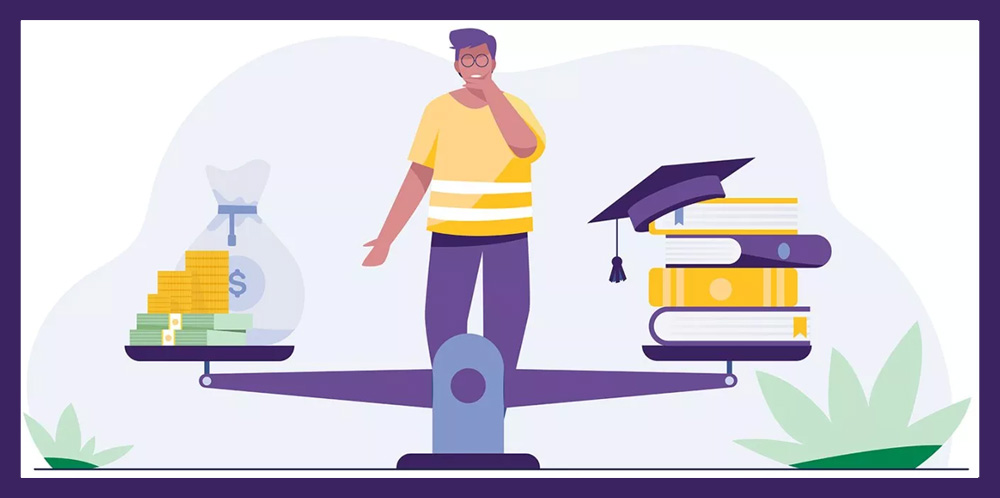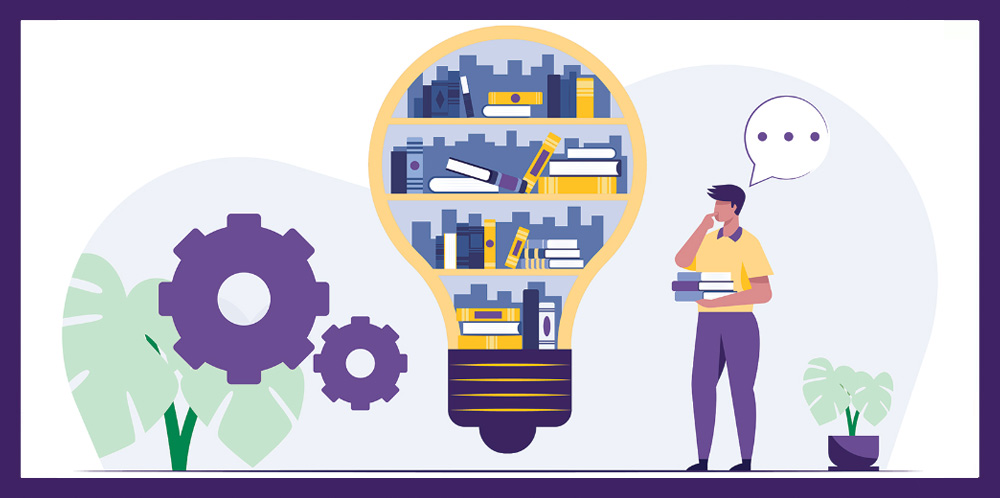Computer Science
Developing technologies for the future.
In today’s fast paced and global society, technology is redefining possibilities while meeting growing consumer needs. With a degree in computer science, you will possess the knowledge and skills necessary to influence what’s next.
Crack the code of real-world problems
You’ll learn to break down complicated processes into their constituent parts, ultimately transforming those parts into working code. Learning this approach will also make you more adept at general problem solving.
Build your technology toolkit
The direct experience you receive in the classroom will prepare you for careers and graduate studies in cybersecurity, machine learning, artificial intelligence and more.
Experience collaborative software design
Beyond the skills you’ll develop as an individual programmer, you’ll also learn how to collaborate effectively by working on group projects. When creating as part of a team, you’ll employ the same development lifecycle used in most professional environments.
Create your personal schedule
You won’t have to worry about taking many years to complete your degree. Our small class sizes and easily accessible courses allow you to complete your B.S. in Computer Science in four years.
At a Glance
Degree Type
Bachelor of Science
Department
Computer Science
School/College
College of Arts and Sciences
Next Steps
Interested in this major? Here's what you can do next:
With challenging and relevant courses, outstanding faculty, small class sizes, and an emphasis on hands-on learning, the computer science program will position you to succeed in your chosen career.
Degree requirements
Find out what it takes to earn a degree in computer science and explore the courses.
Highlighted Courses
Get familiar with some of the courses you might take in this major.
CSC 310: Algorithms
Continues the study of the design and analysis of algorithms, particularly those handling complex data structures and non-numeric processes. Includes an introduction to algorithm design techniques, algorithm verification and the impact of parallel computation on algorithms, operating systems and architectures. A brief introduction is given to artificial intelligence focusing on data representation and heuristic search methods.
See descriptionCSC 322: Introduction to Robotics
An introductory study of the field of robotics-devices designed and programmed to perform various tasks. Topics include hardware design; software design; power subsystems; sensors; actuators; effectors; applications; comparison to biological systems; safety; societal impact and ethics. Student will study theory and build/program a robot.
See descriptionCSC 335: Software Engineering
Presents a formal approach to state-of-the-art techniques for software design and development, involving students in a team approach to organizing, managing and developing software.
See descriptionCSC 340: Operating Systems
Discusses the major functionality and principles behind all major operating systems tasks, including user interface, hardware sharing among users, data sharing among processes, user protections, resources scheduling among users, multi-user environment, multi-processing and real-time systems.
See descriptionCSC 355: Client/Server Fundamentals
Discusses modern technology in network communication and cooperative computation. Topics include discussion of client/server design concept, software expectation, hardware requirement, service, support and training issues.
See descriptionCSC 360: Computer System Security
An introduction of security issues in computer system and data communications, including Data Encryption Standard, public-key systems, digital signatures, ciphers, data compression, data manipulation and supporting techniques.
See description4+1 Option: Fast Track Your Graduate Degree
Add further value to your degree by choosing the 4+1 Option, which gives you a head start on earning a related graduate degree. With 4+1, you’ll be able to take graduate-level courses as part of your undergraduate curriculum. After graduation, you’ll only need one additional year to complete your degree at Cal Lutheran — saving you both time and money.
Recommended Minors
Want to add even more value to your degree? Consider one of these minors to gain a unique combination of skills and perspectives.
We offer hands-on opportunities that give you the freedom to explore your passion through real-world work and prepare for a fulfilling career.
-
Networking Lab
Modern industries often use a mix of technologies, and you’ll need cross-platform experience in order to be successful. Our experimental networking lab will allow you to work with different protocols and operating systems, exposing you to development on integrated networks.
-
Internships
Internship opportunities at companies such as Google, Intel and Disney will give you hands-on experience working in the industry. These experiences can provide invaluable career insights — and even future job offers!
Putting something together and making stuff is the ultimate problem-solving puzzle experiment. It’s the trial and error that’s the fun part. My first programming course was with Dr. Reinhart, and he realized that I was very interested in programming.
Damian Mirizzi Research Project '18
Computer science majors are in demand. Our graduates enjoy a high rate of placement in both jobs and graduate schools. Due to the increasingly digital nature of our economy, you’ll find that your skills are needed in a wide variety of industries, giving you ample career choices.
Potential Careers
Data Scientists
Develop and implement a set of techniques or analytics applications to transform raw data into meaningful information using data-oriented programming languages and visualization software. Apply data mining, data modeling, natural language processing, and machine learning to extract and analyze information from large structured and unstructured datasets. Visualize, interpret, and report data findings. May create dynamic data reports.
See descriptionBusiness Intelligence Analysts
Produce financial and market intelligence by querying data repositories and generating periodic reports. Devise methods for identifying data patterns and trends in available information sources.
See descriptionComputer Programmers
Create, modify, and test the code and scripts that allow computer applications to run. Work from specifications drawn up by software and web developers or other individuals. May develop and write computer programs to store, locate, and retrieve specific documents, data, and information.
See descriptionSoftware Developers
Research, design, and develop computer and network software or specialized utility programs. Analyze user needs and develop software solutions, applying principles and techniques of computer science, engineering, and mathematical analysis. Update software or enhance existing software capabilities. May work with computer hardware engineers to integrate hardware and software systems, and develop specifications and performance requirements. May maintain databases within an application area, working individually or coordinating database development as part of a team.
See descriptionSoftware Quality Assurance Analysts and Testers
Develop and execute software tests to identify software problems and their causes. Test system modifications to prepare for implementation. Document software and application defects using a bug tracking system and report defects to software or web developers. Create and maintain databases of known defects. May participate in software design reviews to provide input on functional requirements, operational characteristics, product designs, and schedules.
See descriptionWeb Developers
Develop and implement websites, web applications, application databases, and interactive web interfaces. Evaluate code to ensure that it is properly structured, meets industry standards, and is compatible with browsers and devices. Optimize website performance, scalability, and server-side code and processes. May develop website infrastructure and integrate websites with other computer applications.
See descriptionWeb and Digital Interface Designers
Develop and test layouts, interfaces, functionality, and navigation menus to ensure compatibility and usability across browsers or devices. May evaluate web design following web and accessibility standards, and may analyze web metrics. May create graphics used in websites and manage website content and links.
See descriptionComputer Systems Analysts
Analyze science, engineering, business, and other data processing problems to develop and implement solutions to complex applications problems, system administration issues, or network concerns. Perform systems management and integration functions, improve existing computer systems, and review computer system capabilities, workflow, and schedule limitations. May analyze or recommend commercially available software.
See descriptionLooking for more career paths? Search these related areas to discover more options.
Employers
Some of the organizations our graduates work for include:
- Aerovironment, Inc
- Amazon
- Amgen
- Bank of America
- Cresendo Interactive
- Disney
- Guitar Center
- IBM
- Intel
- Jet Propulsion Laboratory (JPL)
- Northrop Grumman
- OmniUpdate
- Skyworks
- Xerox
- XYPro
- Yardi Systems
Graduate Schools
Our alumni have pursued advanced degrees at:
- California Lutheran University
- California State University, Channel Islands
- California State University, Fresno
- California State University, Northridge
- Florida Polytechnic University
- Kent State
- Saint Louis University
- Washington State University
- University of California, Berkeley
- University of California, Santa Barbara
- University of Iowa
- University of Southern California
- University of Washington

As a computer science major, I gained a deep understanding of object-oriented programming (OOP) principles using languages such as C++, JAVA, and Python. These skills have been foundational in my work, allowing me to design and develop efficient and scalable software solutions.
Rishabh Sarin '22
Programmer I, Enterprise Applications, Information Technology Services, California Lutheran University
This page includes information from O*NET OnLine by the U.S. Department of Labor, Employment and Training Administration (USDOL/ETA). Used under the CC BY 4.0 license. Some occupations listed above may require a related graduate degree.
How We Prepare You for Success
We have 20,000+ employer contacts for jobs and internships, with over 200 listings posted each week.
Our excellent career counselors in the Career Services center will get in touch with you during your very first term on campus. They offer over 50 workshops each year on resume writing, interviewing, salary negotiations, applying to graduate schools, and other critical skills to help you begin your career successfully.
After you graduate from Cal Lutheran, you receive free access to Career Services for life, as a valued member of our alumni family.
of Cal Lutheran graduates find a job or enroll in graduate school within nine months
We work with students and families to make sure everyone who is admitted to Cal Lutheran can afford it.
Tuition & Fees
You and your family might have questions about how you’ll cover the costs of college. We can tell you this — it costs less than you think.
Scholarships & Grants
We offer a range of awards based on academic merit and financial need. This is money that does not need to be repaid.
Financial Aid
If you're new to the financial aid process, you probably have a lot of questions. But don't worry — we're here to help guide you all the way.
Let us know and we'll send you information about our academics, campus life, the admission process, and more!
Level Up Your College Search
Check out our college success guides to help you navigate the search process.

5 Tips for Applying to College
Learn how to look good when applying to colleges, with personal tips to stand out from Cal Lutheran admission counselors.

How to Afford College
Read this guide to minimize costs as you save for college during high school — learn all about scholarships, financial aid, FAFSA, and more!

How to Choose a College Major
Your major will be a significant part of your academic experience. How do you pick the right one?